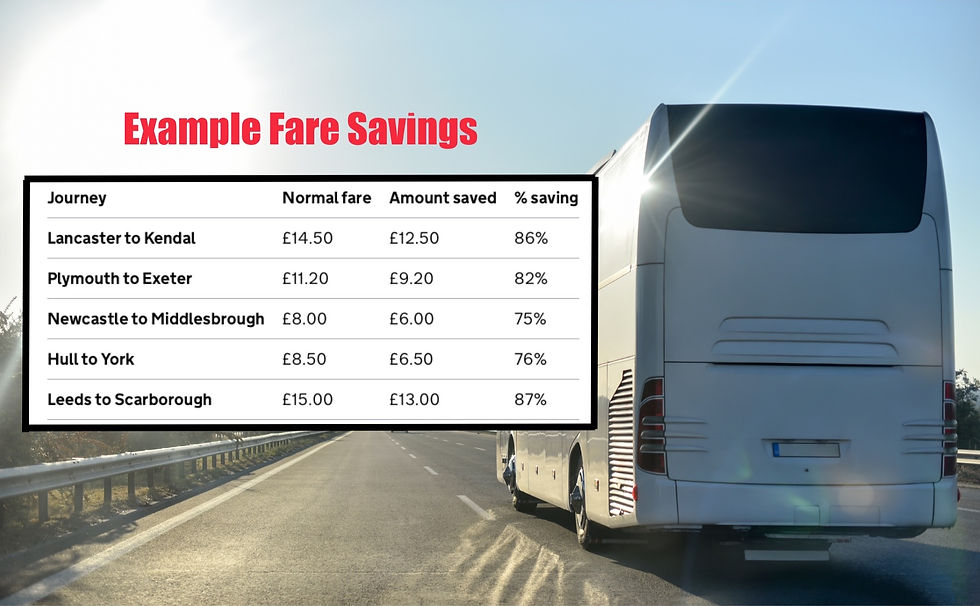
Millions of passengers across England will continue to ‘Get Around for £2’ and access vital bus services thanks to £500 million in government funding, supporting people with the cost of living and ensuring long-term stability in the sector.
Transport Secretary Mark Harper confirmed £300 million cash injection to protect vital routes and improve services until 2025 that people rely on for work, education, medical appointments and shopping.
To help people with the cost of living pressures and save on everyday travel costs, the government will also provide up to £200 million to continue capping single bus fares at £2 outside London until the end of October 2023 and then at £2.50 until 30 November 2024 – when the government will review their effectiveness and future bus fares.
We wrote about this scheme previously, and this was due to end in March, but was then extended until June and now until 2025.
London, Greater Manchester, Merseyside and West Yorkshire are not covered by the £2 scheme, as they already have fare caps in place.
The scheme is available in England only. However, there are some exclusions depending on the bus route you may be using. Most local bus routes are included. Plus, if your journey starts in England, you’ll also be able to travel for a maximum of £2 on cross-border services into Scotland and Wales. Some dedicated school services, and services that only run on school days, are also excluded.
The Office for Budget Responsibility (OBR) estimates that inflation will be halved by the end of this year, and capping fares at £2.50 until November 2024 will create longer-term certainty for bus users over the next year. The fare cap will be reviewed ahead of November 2024.
The move is an essential part of the government’s Help for Households initiative to support everyone through the increased cost of living and will particularly benefit those on lower incomes who take nearly 3 times as many bus trips as those on higher incomes.
During the pandemic, bus usage dropped as low as 10% of pre-pandemic levels and while passenger levels have recovered to around 85 to 90%, the fare cap aims to encourage people back on the bus, which can help reduce congestion and emissions.
Prime Minister Rishi Sunak said:
By extending the £2 fare cap, we’re making sure bus travel remains accessible and affordable for everyone while helping to ease cost of living pressures. Buses connect our communities and play a vital role in growing the economy; they transport people to work, take our kids to school and make sure patients can get to doctors’ appointments. That’s why we’re determined to protect local routes and encourage more people onto the bus, ensuring people can get around easily and in an affordable way.
Some of the biggest savings on the longest routes up and down the country thanks to the fare cap include:

While initially introduced only as a temporary measure, the government are extending the £2 fare cap for the second time to continue helping people save money on travel. Since it started on the 1st of January this year, the £2 fare has encouraged more people to use the bus.
Operators such as Go-Ahead have carried more than 16 million passengers at £2 since the 1st January 2023, helping them save on average a third off fares.
Bus operators that are continuing the £2 fare cap scheme will be confirmed in due course.
The additional funding announced today will be shared between local transport authorities and bus operators to protect and improve routes across England
The new funding models will protect vulnerable routes while allowing local authorities and operators to determine the routes that work for local areas.
As part of the £300 million pledged to support services until 2025, £160 million will be provided to local transport authorities to improve fares, services and infrastructure, while £140 million will go directly to operators to help protect essential services across England.
While it is the responsibility of bus operators and local transport authorities to ensure an adequate provision of bus routes, the government will continue to work closely with the sector to support local areas in dealing with changing travel patterns while managing pressures on the taxpayer.

